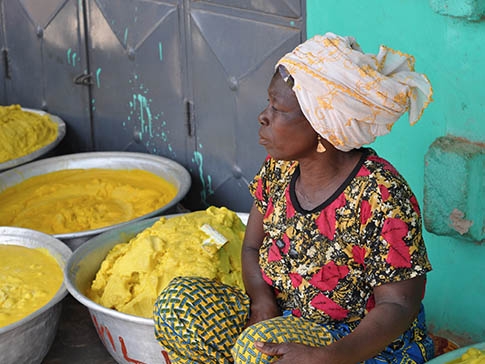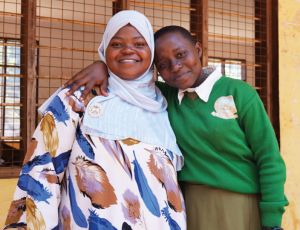
CAMFED, the International Labor Organization (ILO) and the Mastercard Foundation share the goal of supporting young women to access dignified and fulfilling work.
Through an exciting research collaboration, we explored the agricultural value chains in northern Ghana that offer the greatest potential for female entrepreneurs to create good jobs for themselves and others. The findings, which show that groundnut (peanut) and hand-crafted shea butter value chains offer significant potential, are being presented today at the CAMFED-Mastercard Foundation Annual Research and Learning Summit. The report and discussions also detail the constraints that women face and recommendations to help female entrepreneurs grow thriving enterprises.
The research entailed interviews with young women themselves to better understand the economic and social context within which female entrepreneurs live and work, their aspirations, lived experiences and job preferences. Research data were collected from agribusinesses, farmers, small-scale processors, aggregators, input suppliers, development actors, universities and research institutes. The assessment explored the gendered constraints that young women face, alongside market-based constraints. Reported challenges for women include lack of access to machinery and infrastructure, business development services and finance.
The report makes a number of cross-cutting recommendations about how to help women succeed. These include the promotion of mentorship, industry role models, and apprenticeship opportunities for young women in northern Ghana to help overcome entrenched social norms that constrain female entrepreneurs. The study also identifies a huge gap for childcare services, with the opportunity to develop childcare services as a business area to be explored and improved.
The report details practical solutions and partnership opportunities to address market-based constraints. These recommendations include: collaboration with machinery and equipment providers to provide affordable equipment suited to the needs of the target group; connections to buyers willing to provide technical support to women operating in the value chains; partnership with business development service providers to develop a suite of tailored advisory services and work with proactive financial institutions to make the “business case” for better serving the needs of young, rural female entrepreneurs.

A member of a women’s cooperative with the high quality shea butter they produce in northern Ghana. (Photo: Patrick Hayes/CAMFED)
Looking ahead, CAMFED, in partnership with the Mastercard Foundation, will seek to work with a range of stakeholders and apply the recommended interventions to support young Ghanaian women to succeed in these two exciting value chains and to create good jobs for themselves and others. Progress and learning will be tracked, to inform wider scale-up.
Read the full report on opportunities in sustainable agriculture for women in northern Ghana here



